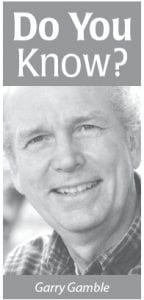While the U.S. Supreme Court declared in 1947—some 70 years ago—“The First Amendment has erected a wall between church and state [and] that wall must be kept high and impregnable”; … adding, “We could not approve the slightest breach,” it would appear only one of the two parties held up their side of the ruling: The Church.
While the Church was asked to rein in its influence, government has—during the past several years—progressively imposed its will on the Church.
Origin of the Separation of Church and State
Disturbingly, the “separation of church and state” phrase, which the Supreme Court invoked, and which has today become so engrained in the culture, was taken from an exchange of letters between President Thomas Jefferson and the Baptist Association of Danbury, Connecticut, shortly after Jefferson became president.
As best-selling author David Burton writes, “Jefferson believed that the government was to be powerless to interfere with religious expressions for a very simple reason: he had long witnessed the unhealthy tendency of government to encroach upon the free exercise of religion. As he explained to Noah Webster [in a December 4, 1790 correspondence]:
‘It had become an universal and almost uncontroverted position in the several States that the purposes of society do not require a surrender of all our rights to our ordinary governors …and which experience has nevertheless proved they [the government] will be constantly encroaching on if submitted to them; that there are also certain fences which experience has proved peculiarly efficacious [effective] against wrong and rarely obstructive of right, which yet the governing powers have ever shown a disposition to weaken and remove. Of the first kind, for instance, is freedom of religion.’
“Thomas Jefferson had no intention of allowing the government to limit, restrict, regulate, or interfere with public religious practices. He believed, along with the other Founders, that the First Amendment had been enacted only to prevent the federal establishment of a national denomination.”
German leadership at the beginning of WWII
Contrast Jefferson’s mindset with that of German leadership at the beginning of World War II. A compelling number of Protestant churches struggled to preserve the independence of their churches from politics and government.
As recounted on Facing History and Ourselves – “Protestant Churches and the Nazi State”:
“Nazi leadership urged Protestants to unite all regional churches into a national church under the centralized leadership of Ludwig Müller, a well-known pastor and Nazi Party member, who was appointed as Reich bishop.
“The German Christian movement made significant changes to German Protestantism to bring it in line with Nazi racial ideology [including re-writing portions of the Bible].
“By January of 1934, a public appeal released by German Christian leaders claimed that ‘the eternal God created for our nation a law that is peculiar to its own kind [read: ‘we need to reimagine God in our own image to suit our needs’]. It took shape in the Leader Adolf Hitler, and in the National Socialist state created by him. This law speaks to us from the history of our people. . . . It is loyalty to this law, which demands of us the battle for honor and freedom . . . One Nation! One God! One Reich! One Church!’”
Not all Protestants in Germany agreed with the [so called] German Christian movement, however, and the changes it instituted. In response to the growing power of the German Christians, another Protestant faction was formed called the Confessing Church. Its slogan was “Church must remain church.”
Its members sought to protect their religion from the grasp of politics and the Nazi government.
The disagreement between the two groups focused on how much influence the Nazi government should have over how they practiced their faith. Hitler did not compromise, he, in essence, told the leadership of the Confessing Church (and I’m paraphrasing here) “You can play church. Just don’t let the Church get in my way!”
The Confessing Church did resist the actions of the Nazis, and as a result, the Nazis destroyed their national headquarters, outlawed their church, and sent many thousands to concentration camps or prisons, where more than 1,000 were killed.
But before we get too absorbed in the tyranny of the Führer, let’s wrap it up for this week and look to next week’s column where I will give witness to the good that results when the faith community partnerships with government for Divine purposes.
Former Cook County Commissioner Garry Gamble is writing this ongoing column about the various ways government works.



Loading Comments